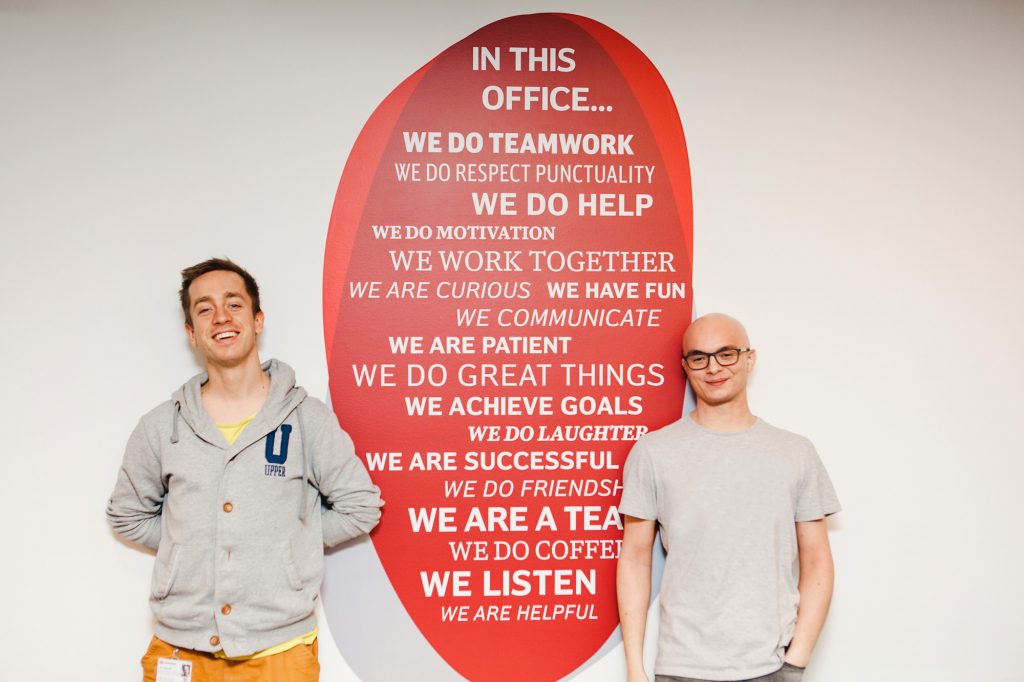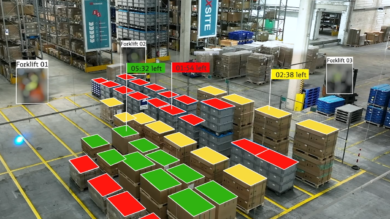Digitalization is key for many logistics service providers to overcome the pandemic and continue supporting their customers. At DB Schenker, many employees began working remotely in March 2020. From Norway to Delhi and Miami to Nanjing, the global logistics provider switched all possible functions to remote work in just one day. This was only possible due to the readiness of DB Schenker’s IT and Digitalization infrastructure, alongside the support of the company’s Technology Solution Centers for logistics.
At DB Schenker, these centers have a major impact both helping the business to improve further and managing the challenges caused by the pandemic. The logistics company currently has three Technology Solution Centers worldwide: Nanjing, China, established in 2009; Delhi, India, establised in 2010; and Warsaw, Poland, established in 2017.
Logistics Matters spoke to Volker Witzel, Senior Vice President Technology Solution Center, about the importance and role of Technology Solution Centers as well as the war for talent. Volker Witzel, a broadly experienced senior manager in IT and an internationally renowned expert in this area, is accountable for all Technology Solution Centers at DB Schenker.
“When it comes to IT professionals, we are competing with other IT companies rather than with other logistics service providers.”
Logistics Matters: What exactly is the role of Technology Solution Centers and how do they contribute to DB Schenker’s market position in the logistics industry?
Volker Witzel: In 2009, we started to launch captive IT service centers in Nanjing, China. This was firstly sparked in and for APAC, but we quickly saw the opportunity to also use the service centers for global IT topics. Over time, the two centers in APAC grew steadily – not only in quantity but also in the value and quality we deliver to the global organization.
An important milestone was our revised IT operating model as well as our digitalization ambitions, which have been intensifying since 2016. This was the starting point to move our perspective away from labor arbitrage and towards real technology centers. We noticed that we need to sharpen our locations to bundle IT engineering power that was key for the digital age.
Since then, we have created a completely new technology center in Warsaw and are now in the progress of extending towards the Americas. Additionally, we are now responsible for driving the professionalization of IT development, test management and application support.

In summary, we enable DB Schenker’s global ambition to be a digital value generator in the logistics industry. Our Technology Solution Centers (TSCs) provide professional services and people to other IT and business units. Together, we have one common goal: Preparing DB Schenker for continuous sustainable digitalization!
Logistics Matters: What happened when the pandemic started last year and how did you ensure DB Schenker’s success globally?
Volker Witzel: Obviously, the pandemic hit us first in Nanjing – even before it was called a pandemic and before COVID-19 moved towards other countries in APAC and the rest of the world. This was a difficult time, but for me it was amazing how DB Schenker stood together as one team with one goal. We were among the first to ask people to work from home on a large scale and on very short notice. There were two reasons behind this: To keep our people as safe as possible, and ensure our solution delivery as a backbone for our business.
We also began exploring virtual collaboration: What works and what doesn’t? While maturing our own capabilities for remote work, we could also be a role model for the rest of the organization. But this was not only our technology centers – it really was a team effort across the global IT and digitalization workforce. Our success was fueled by state-of-the-art infrastructure, the capability to scale partially new solutions at an unprecedented pace, together with the skill and will to mutually support each other as one global team – independent of location or time zone.
Logistics Matters: How do you differentiate from other IT competitors at local employee markets?
Volker Witzel: As a leading global logistics service provider, we of course need to have great subject matter experts in all areas of the logistics domain. To attract the right talent for our TSCs, we aim for IT professionals at our preferred locations.
With this in mind, we identified the need to increase our efforts to position ourselves better and differentiate from our competitors at local job markets. Because when it comes to IT professionals, we are competing with other IT companies rather than with other logistics service providers.
To better define our space in the local market, we launched a global IT Employer of Choice program with many external promotional activities, such as creating local TSC websites for Warsaw, Nanjing, and Dehli. Internal projects were additionally started to focus on the implementation of an onboarding process and a referral program.
We also championed the Great Place to Work certification at our TSCs. I am extremely proud that Warsaw and Delhi have been certified by Great Place to Work – an independent, external auditing company. The certification is awarded as the result of a holistic employee satisfaction study and culture audit which evaluates a company’s HR practices. This is not just a one-time effort but rather a commitment to sustaining our ambition as Employer of Choice.

Logistics Matters: Finally, looking to the future, which trends will affect Technology Solution Centers in logistics from your perspective?
Volker Witzel: At DB Schenker, we are moving in the right direction but always need to adapt to the needs of the organization. We will continue to mature further by introducing even more engineering capabilities and responsibilities at our TSCs.
However, we will not be able to follow all trends and technologies with only our own employees. So, we are also looking for strategic partnerships – either to help us scale for peaks, or to support us in areas where we are unsure to which extent we should pursue opportunities. This will be done under the local management of our TSCs. Additionally, we have a much stronger direction in two areas: strong local leadership and a global mindset while retaining core IT knowledge.
Finally, I also see an impact from the ongoing pandemic. We are now in the second year of the pandemic, and I see a trend of using TSCs more intensely. Many of us have been working remotely for one year and more than ever, it is important to have the right people on the job, while the importance of location decreases. We have already demonstrated that we are well prepared for the challenges ahead!
Published: May 2021













